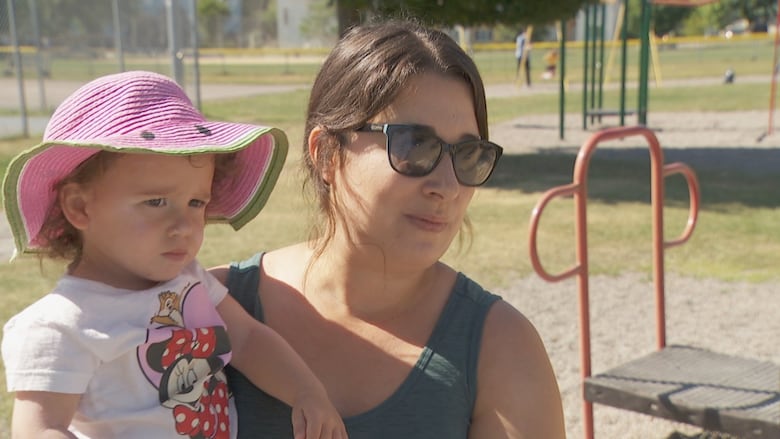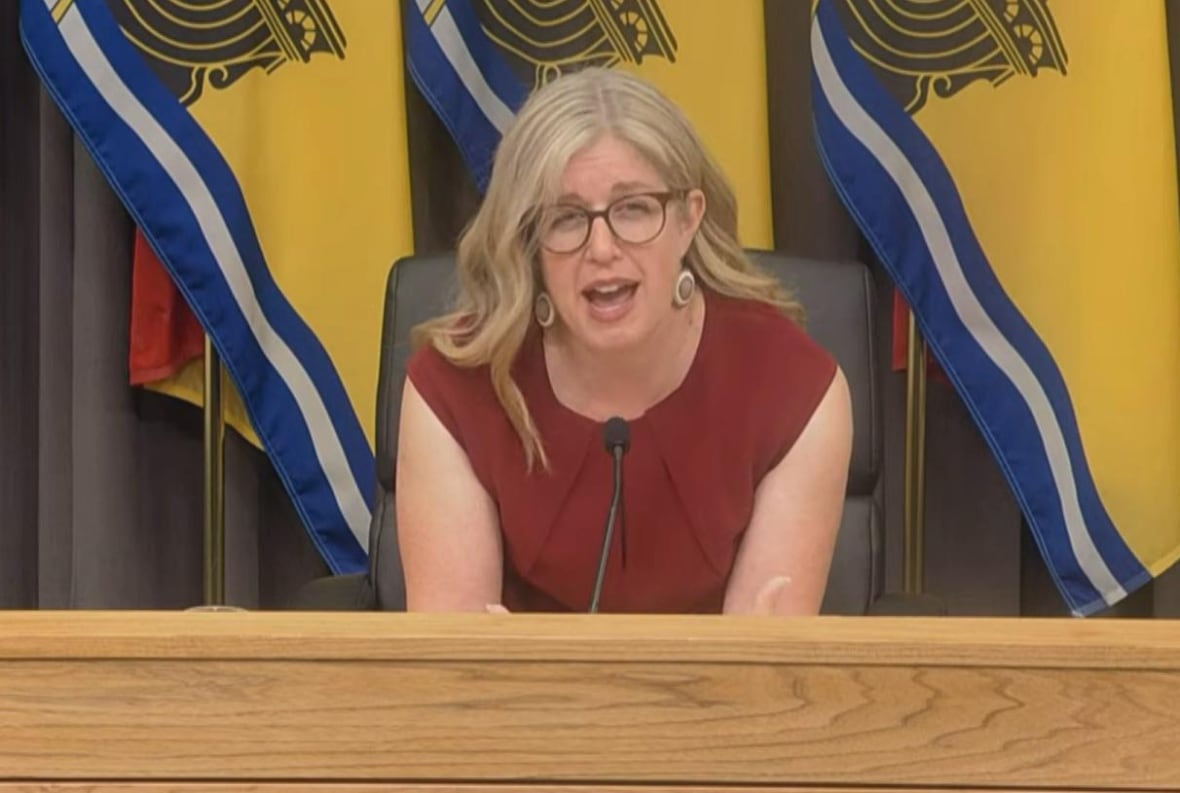$10-per-day child care won't be for all families, Holt confirms
Think-tank calls for universal rate, but premier sees it as an average, with some paying more, others less

New Brunswick parents expecting to see their child-care costs drop to $10 per day next April could be in for a surprise.
Premier Susan Holt reminded them during an online question-and-answer session this week that the federal-provincial agreement promised an average rate of $10 per day, not a universal rate.
"I'm told that when the federal government originally announced this program, they described it as an average of ten dollars a day," Holt said, making air-quotes around the word "average."
"I think that often gets missed," she said.
Holt was responding to a question about why the $10-a-day target has not been reached.
It's a common misconception that the five-year, $544-million federal-provincial funding agreement, reached in December 2021, would mean a $10 rate for everyone by April 2026.
"Is the plan that it's going to be ten dollars for everybody? I don't know," said Erin Keoughan, a Fredericton mother of two children.

Michelle Fife, another parent, said she assumed everyone would pay that rate.
"I had no idea," she said. "I thought it was 10 dollars a day for everybody, I guess."
When then-prime minister Justin Trudeau announced the New Brunswick deal in 2021, he was clear that it would lead to "a 10-dollar-a-day average cost across the province within five years."
That average will result from some families paying the maximum $18 to $21 a day while others with lower incomes receive subsidies that reduce their out-of-pocket cost to zero or close to zero.
"How the people experience that 10 dollars a day will depend on where they are on the income spectrum," Holt said Tuesday.
The average out-of-pocket cost this year is $12.82 a day.
The premier's 2024 election platform did not mention that the $10 rate would be an average.
A Holt Liberal government would "continue implementing $10-a-day child care across the province, making it more accessible," the platform document said.
The speech from the throne last November also skipped any mention of the average, using an almost identical pledge to "continue to implement $10-a-day child care across the province to make it more accessible."
The progress of the federal-provincial child-care agreements was the subject of a recent report, "The Price is Not Right (Yet)," by the Canadian Centre for Policy Alternatives, a progressive think-tank.

It says New Brunswick will be following the letter but not the spirit of the federal-provincial agreement if the $10 rate isn't universal.
The report examined the cost savings for families in all 10 provinces and three territories.
The first phase of the program in 2022 saw an average reduction in monthly child care fees of $379 in Fredericton, $400 in Moncton and $412 in Saint John.
The maximum out-of-pocket cost now in the three cities is $21 per day for infants and $18 for toddlers and pre-schoolers. In smaller urban and all rural areas, those maximum rates are $19 and $16, respectively.
"There's been big reductions. This is worth pointing out," said David Macdonald, the senior economist at the Canadian Centre for Policy Alternatives, who co-authored the report.
"It's not like this is a bad news story. Even if you're at 20 dollars a day, that's a lot cheaper than where the province was in 2019 before this all began."
The government anticipates adjusting the maximums next year to get the average to $10, a spokesperson said.
Macdonald said child-care subsidies are a worthwhile investment because they make it easier for parents to return to the workforce, which in turn means more income tax revenue for governments.
Keoughan said the 2022 cut in rates made it more affordable for her to return to work sooner, and also allowed her and her husband to pay to hold onto a child care spot for their second child.
While the original funding agreement stipulates that the $10 target is an average, Macdonald said six provinces and territories have gone beyond that to make it universal.
He said the federal funding should be enough to do that in New Brunswick as well.
If not, he predicted Holt will face more questions about the cost next spring.
"The question really is, politically, come April of next year, you've got parents in big cities paying 18 to 20 bucks a day, saying, 'I don't have one of these 10 dollars a day spaces, I'm paying 20 bucks a day,' and the province says, 'Well, on average you're paying 10,'" he said.
"They'll say, 'No, actually, I am really paying 18 to 20 dollars a day, and I would like 10 dollar a day spaces like you're going to find in Newfoundland and Prince Edward Island.'"
Only "designated" spaces — in regulated child-care centres that adopt a provincially required curriculum — are eligible for the funding and the rate reductions.
The 2021 funding agreement between New Brunswick and Ottawa was also supposed to see 3,400 new spaces created over five years.
According to the 2023-2024 annual report on the agreement, 1,634 new spaces had been created as of March 31, 2024.
An additional 942 designated spaces have been added in 2024-25, said a spokesperson for the Department of Education and Early Childhood Development.
The spokesperson said 4,925 names are on the wait list for spaces — up from 4,572 in March 2024. The new number includes 1,146 children who had not yet been born but whose parents had already registered.
The Holt Liberals promised in last year's election to eliminate that wait list.
In March, most provinces agreed to extensions of their agreements with the federal government for another five years, to 2031.
"Our government is looking forward to discussions with the new federal government about what this looks like going forward," Education and Early Childhood Development Minister Claire Johnson said in a statement.
That included "the possibility of opening more designated spaces to make affordable child care more accessible to New Brunswicker."
The province said at the time that the initial five-year deal had increased wages for child-care workers and reduced the turnover rate in the profession.
Corrections
- An earlier version of this story had an incorrect figure for how many new spaces were to be created under the 2021 funding agreement between New Brunswick and Ottawa. The correct figure is 3,400 new spaces over five years.Aug 07, 2025 1:10 PM EDT


